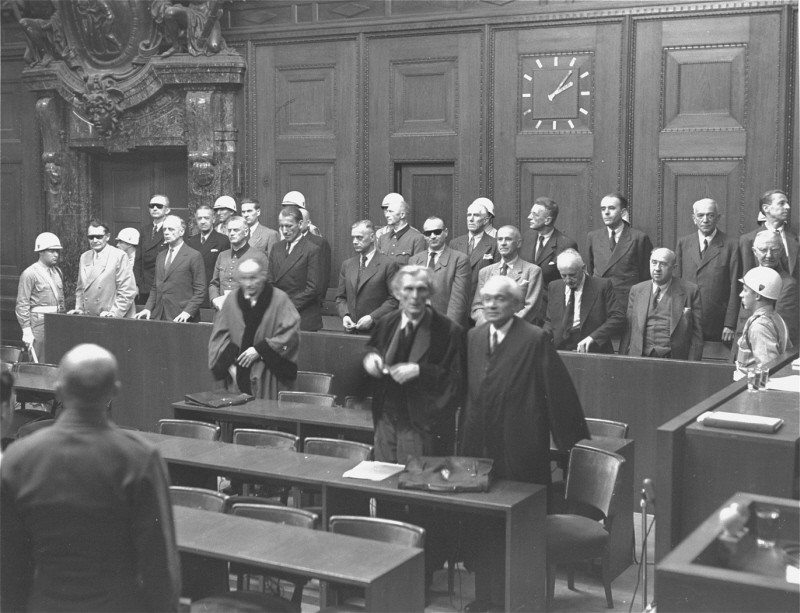
Hans Frank
In the immediate aftermath of the Holocaust, the world was faced with a challenge—how to hold individually accountable those German leaders who were responsible for the commission of monstrous crimes against humanity and international peace. The International Military Tribunal (IMT) held in Nuremberg, Germany, attempted to face this immense challenge. On October 18, 1945, the chief prosecutors of the IMT brought charges against 24 leading German officials, among them Hans Frank.
Hans Frank (1900–1946) was an early supporter of the Nazi Party. He studied law and eventually became personal legal advisor to Adolf Hitler. After the outbreak of World War II, Frank was appointed Governor General of occupied Poland. In this capacity, Frank was responsible for the exploitation and murder of hundreds of thousands of Polish civilians, as well as the deportation and murder of Polish Jews.
Frank was found guilty on counts three and four (war crimes and crimes against humanity) and sentenced to death. He was executed on October 16, 1946.
Critical Thinking Questions
Explore how challenges to ethical behavior and leadership played out in the context of the Holocaust. How do these challenges confront us today?
Across Europe, the Nazis found countless willing helpers who collaborated or were complicit in their crimes. What motives and pressures led so many individuals to persecute, to murder, or to abandon their fellow human beings?
Research how Hans Frank defended his actions and choices at the International Military Tribunal?

